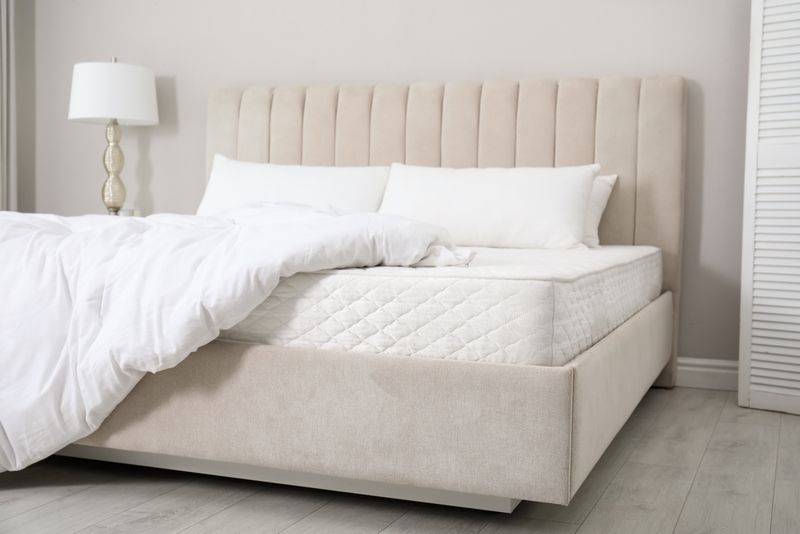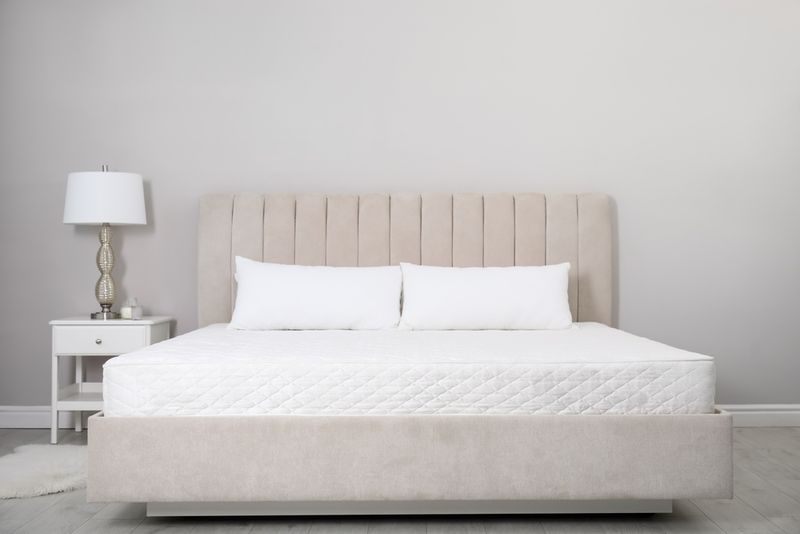Are Your Mattress Materials Non-Toxic?
by Matt S.
Posted on Thursday, October 05, 2023
To keep this site free for consumers, we receive compensation for customer referrals.

Introduction
When it comes to purchasing a new mattress, one important factor to consider is the safety and toxicity of the materials used. With many mattress brands claiming to be "non-toxic," it can be challenging to determine which ones are genuinely safe for you and your family. In this blog post, we will discuss several crucial factors to consider when determining if the materials in a mattress are non-toxic.
Look for Certifications
One of the most reliable ways to determine the non-toxicity of a mattress is to look for credible certifications. Several independent organizations test and certify mattresses to ensure they meet specific safety standards. Look for certifications such as Global Organic Textile Standard (GOTS) for organic materials, CertiPUR-US for foam products, and Greenguard Gold for low chemical emissions. These certifications provide peace of mind that the mattress is made with non-toxic materials.
Evaluate the Materials
While certifications are essential, it's also crucial to evaluate the materials used in the mattress. Some materials commonly found in mattresses can be potentially harmful. For example, avoid mattresses that contain polyurethane foam, as it often contains harmful flame retardants. Instead, opt for mattresses made with natural materials like organic cotton, wool, or latex, as these are generally non-toxic and sustainable options. Additionally, check for the absence of harmful chemicals such as formaldehyde, phthalates, and heavy metals in the materials used.
Another aspect to consider is the presence of natural or synthetic latex in the mattress. Natural latex derived from rubber trees is considered non-toxic and eco-friendly. However, synthetic latex may contain chemicals like styrene and butadiene, which can be harmful. Ensure that the mattress clearly indicates whether it contains natural or synthetic latex.
It's also important to be cautious of mattresses labeled as "eco-friendly" or "green" without clear evidence of non-toxicity. These terms are not regulated and can be used as marketing ploys. Always verify the claims and certifications associated with these labels before making a purchase.
Read Reviews and Seek Recommendations
Another helpful approach in determining if the materials in a mattress are non-toxic is to read reviews and seek recommendations from reliable sources. Consumer reviews can provide valuable insights into the experiences of others who have purchased and used the mattress. Look for reviews that specifically mention the non-toxicity of the materials used.
Furthermore, seek recommendations from trusted friends, family, or healthcare professionals who have knowledge of non-toxic mattress options. Their personal experiences and expertise can guide you in making an informed decision.
Conclusion
Ensuring the non-toxicity of the materials used in a mattress is crucial for your health and well-being. By seeking credible certifications, evaluating the materials, reading reviews, and seeking recommendations, you can make an informed decision when purchasing a mattress. Remember to prioritize your safety and choose mattresses made with natural and non-toxic materials to promote a healthy sleep environment.








